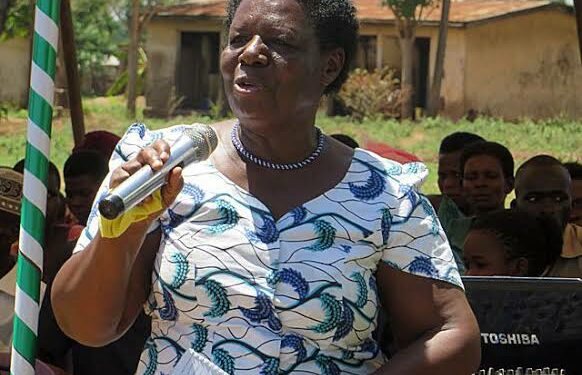SENIOR Presidential Advisor (SPA) on Poverty Alleviation in Busoga Mrs. Florence Mutyabule has asked residents to embrace best practices to ensure that women are empowered to fully handle family nutrition as one way of fighting poverty.
Mutyabule describes malnutrition as a ‘silent killer’ and urges men to encourage and support their pregnant wives and daughters to always attend antenatal sessions where they are taught proper medication and nutrition.
“…gone are the days when protein-rich foods like fish, meat, chicken and eggs as well as milk were considered a monopoly diet for men while women and children were reduced to beans and posho…”,she appealed.
She says most women, including girls face risk of under nutrition due to biological, socio-economic, and cultural factors that inhibit their abilities and access to better food intake.
Although a lot has changed, in some cultural settings, women and children eat meat, fish or eggs only on Christmas, Easter or Eid ,commonly known as ‘big days’ while men enjoy them throughout the days.
Information available indicates that women have a higher risk of under nutrition compared to men due to many factors, particularly the negative gender norms that favor men over women.
“…in most cases, for example, men eat the best part of a chicken meal, while women and children take soup…this long held practice that men are served food first, moreover the best and women eat leftovers must be revisited…,”Mrs. Mutyabule cautions.
She says under nutrition has far reaching consequences in women of child- bearing age of 19 to 49 years which are experienced at the individual, community and national level.
The former head teacher-turned politician observes that most men in Busoga spend family revenue in joints and restaurants dotted in urban centres where they enjoy nutritious meals and booze while family members are feeding on foods with low nutritional values.
“…even when some meat is bought or chicken slaughtered at home, our women are dictated by culture to serve the best parts and quantity to the husband as the head of the family leaving little balance to be shared by the rest…”,she said.
As a way forward, Mrs Florence Mutyabule urges men to support women to feed well with a regular balanced diet so that they can competently engage in meaningful business and farming activities to improve on the standard of living.
What You Need to Know:
According to the 2016 Uganda Demographic Health Survey(UDHS),the burden of nutrition in Uganda is big with close to 30% of children aged 6-59 months stunted, that is short for their age,4% wasted, that is thin for their height,11% underweight, that is low weight for their age and another 4% over weight-high weight for their age.
Data available suggests that more than 11 million Ugandans representing 30% eat food described as unacceptable for human development, which means that those citizens are likely to be undernourished or are easy targets for diseases.
Reports also say on the Dietary Energy Consumption (DEC) matrix, which is the food available for human consumption (usually expressed in kilocalories or kilojoules per person per day) that Busoga and Bugisu sub regions were the most food-deprived regions.
According to experts, calories are units of energy, contained within food, and used by the human body to maintain daily health and life. Calories are associated with energy that is contained in protein, carbohydrates and fat.
Experts also say the energy your body needs in order to stay healthy and alive is directly related to the number of calories you eat and the inverse is also true that too many calories consumed can lead to weight problems and poor health.
In September 2020, Uganda launched the Uganda Nutrition Action Plan (UNAP) II to increase access to and utilization of nutrition-specific services by children below five years of age, adolescent girls, pregnant and lactating women and other vulnerable groups.
The other objective was to increase availability and utilization of nutrition sensitive service by children below five years.
It was also to strengthen the enabling environment for scaling up nutrition specific and nutrition sensitive interventions as per its objectives.
Since the implementation of UNAPI, nutrition has been acknowledged as a development and human rights issue globally and nationally. It’s a cross cutting and multi sectoral issue central to societal development and transformation.
According to Uganda’s Prime Minister Robinah Nabbanja, these are aspirations of the Uganda Vision 2040, NDP III and the NRM Manifesto 2021-2026.The principles underpinning this paradigm on nutrition are embodied in the second Uganda Nutrition Action Plan, the country’s strategic framework for Scaling up Nutrition and overall planning framework for nutrition programming 2020/21-2024/25 in Uganda.
Do you have a story in your community or an opinion to share with us: Email us at editorial@watchdoguganda.com













